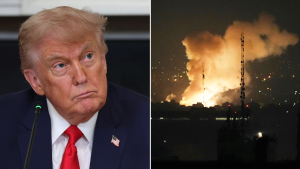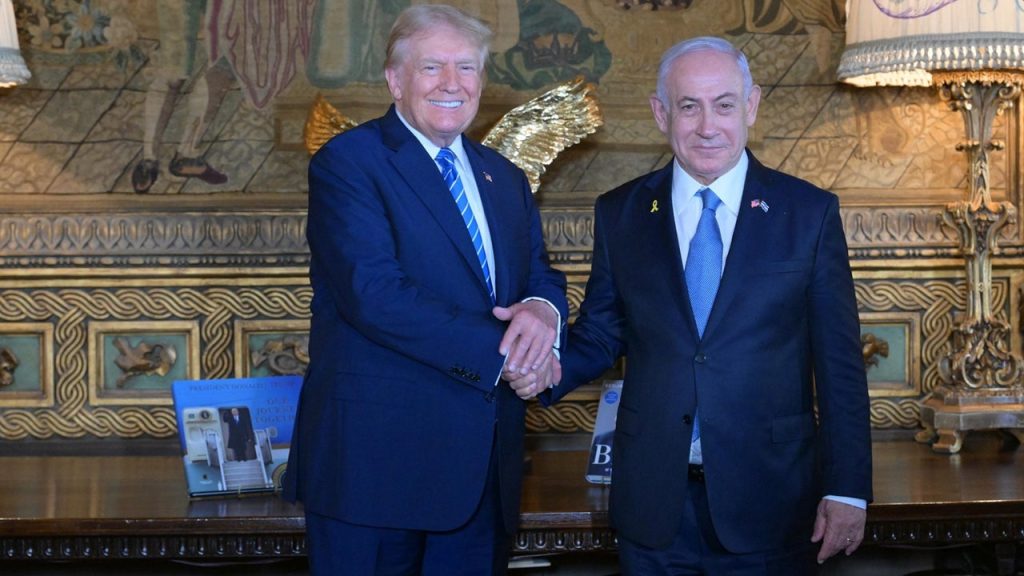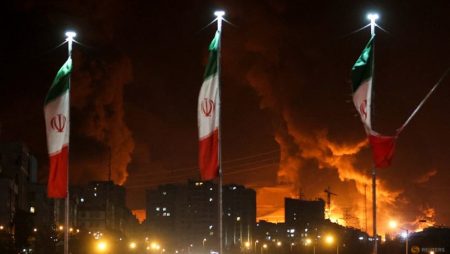Prime Minister Benjamin Netanyahu’s visit to the United States marks a significant turning point in Israeli-American relations, particularly following a period of strained ties with the previous Biden administration. This visit, occurring shortly after a fragile ceasefire agreement with Hamas, underscores the importance of the U.S.-Israel alliance in navigating complex geopolitical challenges in the Middle East. The timing of the visit, being the first reception of a foreign leader by President Trump since his return to office, further emphasizes the symbolic weight of this meeting. Netanyahu’s rhetoric highlights the anticipated strengthening of bilateral relations and the potential for further advancements in regional peace and security. The visit comes on the heels of a protracted conflict in Gaza, a conflict that has reshaped the political landscape of the Middle East.
Netanyahu’s trip to Washington carries multifaceted implications. First, it symbolizes a renewed commitment to the U.S.-Israel alliance, a relationship that has historically been a cornerstone of American foreign policy in the Middle East. Secondly, the visit offers an opportunity to recalibrate the strategic partnership between the two nations, particularly in addressing regional security concerns, including the ongoing challenges posed by Iran’s nuclear ambitions and its destabilizing influence in the region. Thirdly, the meeting serves as a platform for Netanyahu to discuss the recent ceasefire agreement with Hamas and to explore avenues for achieving a lasting peace in the region. This includes addressing the complexities of the Israeli-Palestinian conflict and fostering greater cooperation between Israel and its Arab neighbors.
The backdrop of the recent Gaza war, triggered by Hamas’s October 2023 attack, adds further complexity to Netanyahu’s visit. The conflict, which resulted in considerable devastation and loss of life, underscored the volatile nature of the region and the enduring challenges to peace. The ceasefire, though fragile, represents a crucial step towards de-escalation and provides a window of opportunity for diplomatic efforts to address the underlying causes of the conflict. Netanyahu’s discussions with President Trump are expected to focus on consolidating the ceasefire and exploring a long-term solution to the Israeli-Palestinian conflict, potentially building upon the Abraham Accords, which normalized relations between Israel and several Arab states.
Netanyahu’s emphasis on the “strength of the alliance” between Israel and the United States reflects the strategic importance of this relationship for both countries. For Israel, the U.S. represents a vital security partner, providing military aid, diplomatic support, and technological cooperation. For the U.S., Israel is a key ally in a volatile region, providing intelligence sharing and strategic cooperation in counterterrorism efforts. The meeting aims to reinforce this partnership, ensuring continued collaboration on issues of mutual concern. Netanyahu’s statement suggests a desire to leverage this strengthened relationship to further Israel’s security interests and expand the circle of peace in the region.
The contrast between Netanyahu’s relationship with President Trump and his previous interactions with the Biden administration adds another layer of intrigue to this visit. The perceived tension with the Biden administration, marked by disagreements over the Israeli government’s judicial overhaul and the handling of the Palestinian conflict, underscores the shift in dynamics under the new Trump administration. Netanyahu’s anticipation of a more favorable and cooperative relationship with President Trump signifies a potential reset in U.S.-Israel relations and a renewed focus on shared strategic objectives. This includes bolstering Israel’s security capabilities and pursuing a more assertive approach towards regional adversaries, particularly Iran.
Netanyahu’s visit holds the potential to be a pivotal moment in the trajectory of Israeli-American relations and the broader Middle East landscape. The discussions between Netanyahu and President Trump will likely shape the future of the U.S. approach to the Israeli-Palestinian conflict, influence regional security dynamics, and determine the course of bilateral cooperation between the two nations. The visit is fraught with both opportunities and challenges. The opportunity lies in the potential for strengthening the U.S.-Israel partnership and advancing the pursuit of peace and stability in the region. The challenge lies in navigating the complexities of the region, addressing the deep-seated grievances that fuel the Israeli-Palestinian conflict, and managing the potential for renewed escalation in Gaza.










